Insomnia sufferers battle sleepless nights
- Published
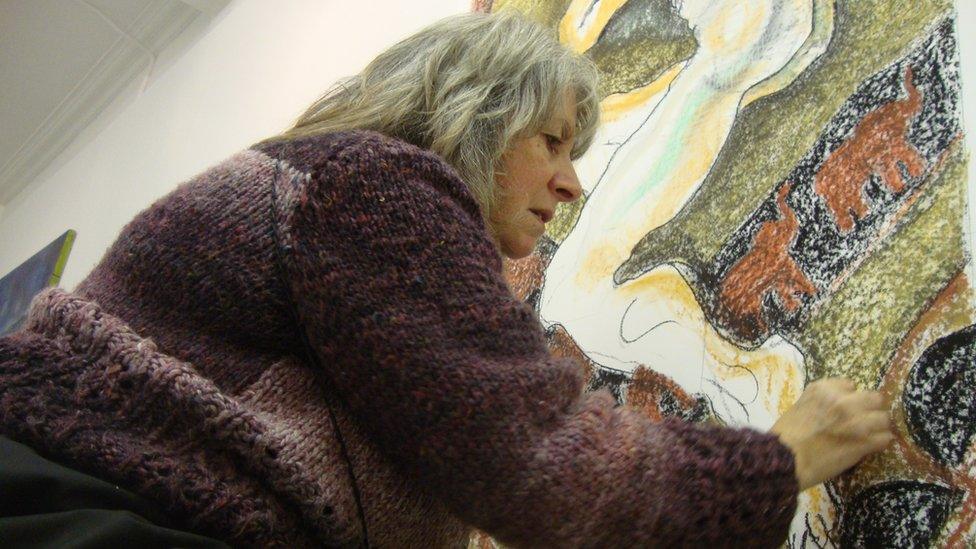
Rose has suffered from insomnia for almost 50 years
A third of the UK population struggles to get a good night's sleep. For some, insomnia can take over their life, leaving them increasingly desperate to drift off.
Amid concerns over access to sleep disorder services in Wales, three people share their stories of what it's like to live with the condition.
'I take 12 pills a night'
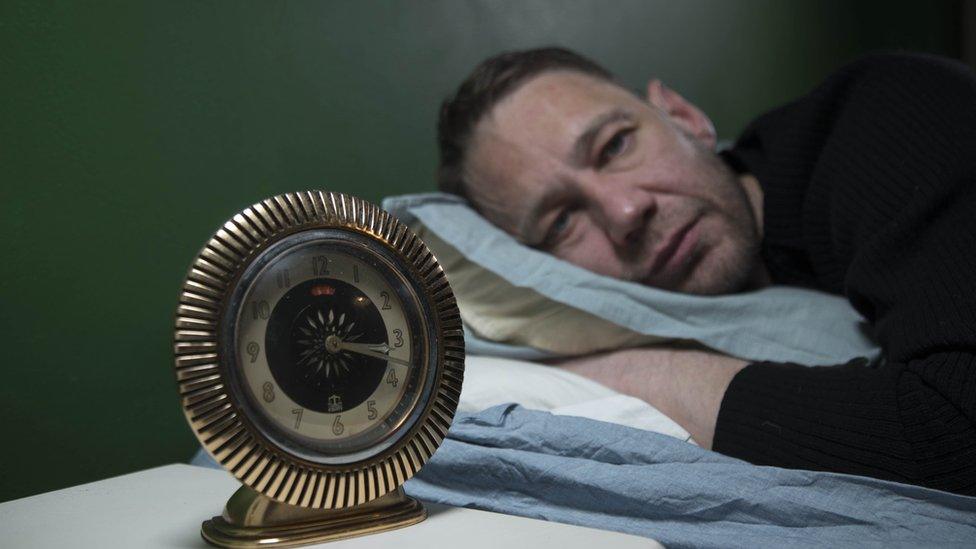
Martin was taking up to 12 sleeping tablets a night
Award-winning documentary maker Martin Read says his insomnia has been a "gift and a curse".
Martin lives in Cardiff, the worst city in the UK for insomnia, according to research, external.
"Going to sleep for most people is as easy as breathing and walking but for me it's the hardest thing in the world," he said.
He has not slept properly in over 30 years and usually makes do with around three hours of sleep a night.
He said his "manic mind" has given him time and determination to work but said the condition had seen him "unravel".
"It gives me this will that won't stop until I achieve what I want. But I have no self-confidence, it's embarrassing and I'm so scared of what people think of me," he said.
Five years ago, Martin initially had two months supply of sleeping tablets. But he said he became dependent on then he resorted to desperate measures by buying the drug online.
"To get any sleep I need a big dose of sleeping pills.
"I was prescribed theses tablets and told it would cure my insomnia but no-one told me it was addictive, that my dose would go up or all the horrible side-effects.
"I need more and more to have the same effect. I now need 12 a night and that's dangerous.
"Doctors would not prescribe me that amount. But you can buy them easily online and I know this is a risk. You can't be sure what you are getting. I'm poisoning myself but I'm desperate for sleep."
His new GP said that number of pills every day "would kill" someone who had not built up that tolerance.
The need for Zs
Adults are advised to get between seven and nine hours' sleep every night.
However, a quarter of the population is getting less than five.
Those who experience sleep deprivation complain of mood swings, lack of energy, inability to concentrate and anger.
Zopiclone's manufacturers say users should take just one tablet a night and for no longer than four weeks.
They warn of side effects, including withdrawal. Sleeping tablets can also be highly addictive.
Dr Simon Braybrook advised a slow reduction in the number of tablets.
He said: "It's like a withdrawal from heroin. I think it's one of the worst withdrawals you can have."
"Sleep's important, in the same way that oxygen, food and water are important. It's just an essential for life. We can't do without it," said University of Oxford professor Colin Espie.
Martin was determined to stop taking sleeping pills and the documentary follows his mission over four months to withdraw completely and use non-medical methods to improve his sleep.
'Everything revolves around insomnia'
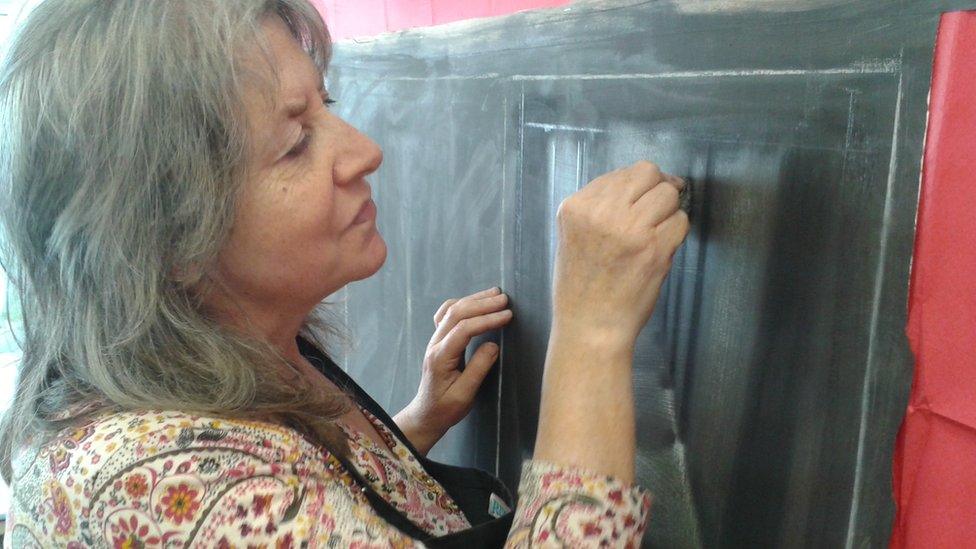
Amateur artist Rose, who lives in Swansea, has had insomnia for almost 50 years.
The condition is so disruptive that she attends heavy metal concerts as part of her fight against it.
"Everything revolves around my insomnia," she said.
"I have no problem getting to sleep but after four and a half hours, I wake up and that's it," she said.
"If I go to the cinema or theatre I start nodding off because I'm so tired. That's why I go to heavy metal gigs, you can't drop off there!"
'I don't want to live like this'
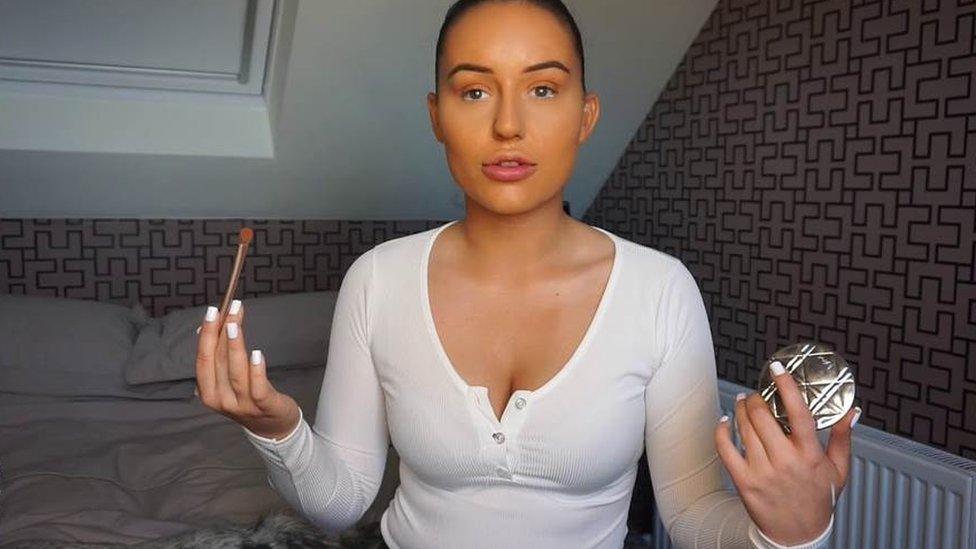
Vlogger Georgia became "completely dependent" on sleeping pills
Vlogger Georgia hides her insomnia from the world and does most of the work on her online fashion business at night. She said she is completely dependent on sleeping pills.
"I had a week when I stopped taking them (tablets) and I ended up in hospital," she said.
"I want them gone. I don't want to live like this. What's going to happen to me? Am I just going to keep going down this spiral?"

Watch The Insomniacs on BBC One Wales on Tuesday 14 May at 22:35 BST or catch up on BBC iPlayer.
- Published16 November 2018
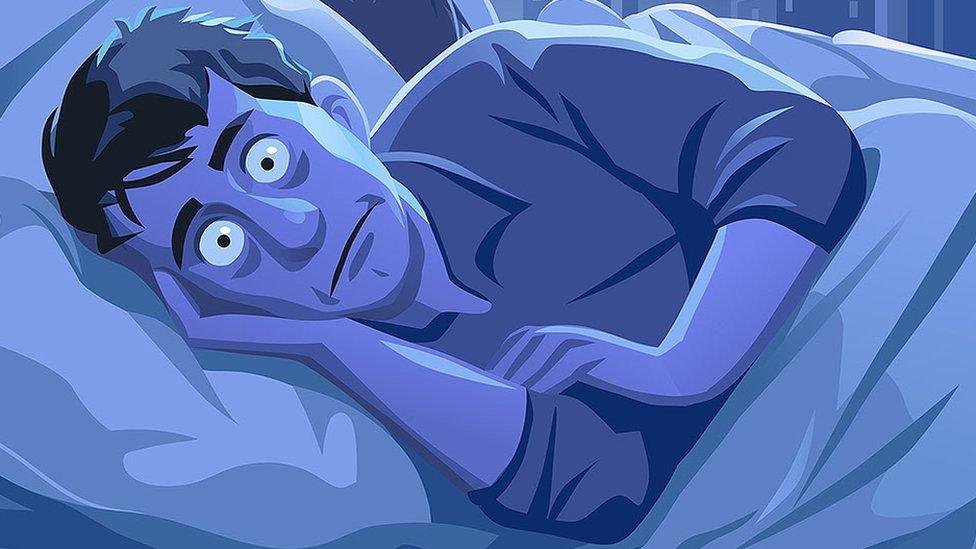
- Published29 August 2018
